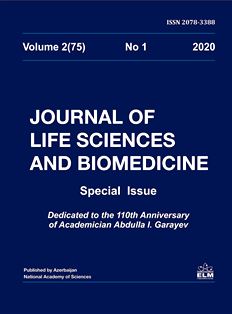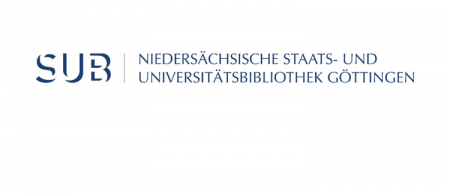
Proline accumulation and WRKY14/WRKY36 gene expression dynamics during drought induced flag leaf senescence
Proline accumulation and WRKY14/WRKY36 gene expression dynamics during drought induced flag leaf senescence
Turana Isgandarova1, Samira Rustamova1, Tofig Allahverdiyev1,2, Irada Huseynova1*
1Bioadaptation Laboratory, Institute of Molecular Biology & Biotechnologies, Ministry of Science and Education of the Republic of Azerbaijan, AZ1073, Baku, Azerbaijan
2 Department of Plant Physiology, Research Institute of Crop Husbandry, Ministry of Agriculture of the Republic of Azerbaijan, Pirshagi, Sovkhoz 2, AZ1098, Baku, Azerbaijan
*For correspondence: i.huseynova@imbb.science.az
Received: September 1, 2024; Received in revised form: October 17, 2024; Accepted: November 26, 2024
Abstract
Wheat is one of the most important cereal crops globally; however, its productivity is often reduced due to abiotic stresses, particularly drought, which accelerates leaf senescence. This study focuses on investigating the roles of proline and WRKY transcription factors, specifically WRKY14 and WRKY36, in regulating drought-induced premature senescence in wheat genotypes with varying stress tolerance. The experiments included genotypes of bread wheat (Triticum aestivum L.) and durum wheat (Triticum durum Desf.), which were cultivated under controlled conditions with normal and drought regimes. After the booting stage, irrigation was discontinued for the drought-treated plants. Flag leaf samples were collected 7, 14, 21, 28, and 35 days after anthesis. Proline accumulation was significantly higher in drought-tolerant genotypes, peaking 21 days after anthesis, compared to sensitive genotypes. Similarly, the expression of WRKY14 and WRKY36 genes showed genotype-specific dynamics. The WRKY36 gene exhibited higher expression levels in drought-tolerant genotypes, particularly under drought conditions, while the transcriptional activity of WRKY14 was more associated with senescence processes. Understanding the molecular mechanisms governing proline metabolism and the role of WRKY transcription factors can offer valuable insights for developing wheat varieties with improved resistance to premature senescence.
Keywords: Wheat, aging, water deficiency, transcription factors, RT-PCR
REFERENCES
Alcázar R., Bueno M., Tiburcio A.T. (2020) Polyamines: Small amines with large effects on plant abiotic stress tolerance. Cells, 9: 2373.
Baillo E.H., Kimotho R.N., Zhang Z., Xu P. (2019) Transcription factors associated with abiotic and biotic stress tolerance and their potential for crops improvement. Genes, 10(10): 771.
Bates L.S., Waldren R.P., Teare I.D. (1973) Rapid determination of free proline for water stress studies. Plant Soil, 39: 205 207.
Borrill P., Harrington S. A., Simmonds J., & Uauy C. (2019) Identification of transcription factors regulating senescence in wheat through gene regulatory network modelling. Plant Physiol., 180(3): 1740 1755.
Cao J., Liu H., Tan S., Li Z. (2023) Transcription factors regulated leaf senescence: Current knowledge, challenges, and approaches. International Journal of Molecular Sciences, 24(11): 9245.
Chen L., Xiang S., Chen Y., Li Y. (2023) Regulation of WRKY transcription factors in plant immunity and stress responses. Plant Cell Reports, 42: 567 580.
Doan P.P.T., Vuong H.H., & Kim J. (2024) Genetic Foundation of Leaf Senescence: Insights from Natural and Cultivated Plant Diversity. Plants, 13(23): 3405.
Gregersen P.L., Culetic A., Boschian L., & Krupinska K. (2013) Plant senescence and crop productivity. Plant Mol. Biol., 82: 603 622.
Guo Y., Ren G., Zhang K., Li Z., Miao Y., & Guo H. (2021). Leaf senescence: progression, regulation, and application. Mol. Hortic., 1: 125.
Hayat S. et al. (2012) Role of proline under changing environments. Plant Signal. Behav., 7: 1456 1466.
Li P., Pan Q., et al. (2024) Improving crop productivity by optimizing straw returning patterns to delay senescence of wheat leaves. Eur. J. Agron., 159: 127274.
Lim P.O., Kim H.J., Nam H.G. (2007) Leaf senescence. Annual Review of Plant Biology, 58: 115 136.
Livak K.J., & Schmittgen T.D. (2001) Analysis of relative gene expression data using real time quantitative PCR and the 2−ΔΔCT method. Methods, 25(4): 402 408.
Rushton P.J., Somssich I.E., Ringler P., Shen Q.J. (2010) WRKY transcription factors. Trends in Plant Science, 15(5): 247 258.
Saeed A., Ahmed H.G.M.D., Zeng Y., Fatima N., Hussain G. S., Akram M.I., ... & Mushtaq M. A. (2024) Genetic evaluation and breeding strategies under water deficit environment to develop the drought tolerant wheat germplasm. Pol. J. Environ. Stud., 33(6): 1 12.
Tan Q., Zhao M., Gao J.et al. (2024) AtVQ25 promotes salicylic acid related leaf senescence by fine tuning the self repression of AtWRKY53. Journal of Integrative Plant Biology, 66(1): 103 114.
Verma K.K. et al. (2024). Climate change adaptation: Challenges for agricultural sustainability. Plant, Cell & Environment, 47(8): 15078
Vittozzi Y., Krüger T., Majee A., Née G., & Wenkel S. (2024). ABI5 binding proteins: key players in coordinating plant growth and development. Trends Plant Sci., 29(9): 1006–1017.
Zdunek Zastocka E., Grabowska A., Michniewska B., Orzechowski S. (2021) Proline concentration and its metabolism are regulated in a leaf age dependent manner but not by abscisic acid in pea plants exposed to cadmium stress. Cells, 10(4): 946.
Zeng Y., et al. (2024). WRKY proteins regulate the development of plants in response to abiotic stresses. J. Plant Interact., 19(1): 2299865.
Zhang H. et al. (2020) Abscisic acid promotes leaf senescence in wheat. Frontiers in Plant Science, 11: 1234.
Zhao M.M., Zhang X.W., Liu Y.W., Li K., Tan Q., Zhou S., ... & Zhou C.J. (2020) A WRKY transcription factor, TaWRKY42 B, facilitates initiation of leaf senescence by promoting jasmonic acid biosynthesis. BMC Plant Biol., 20: 1 22. Zhou Y. et al. (2023) Differential regulation of WRKY14 and WRKY36 in response to drought and senescence. Plant Molecular Biology, 111: 89 102.
ORCIDS:
Turana Isgandarova: https://orcid.org/0000 0002 6287 9220
Samira Rustamova: https://orcid.org/0000 0001 5337 7109
Tofig Allahverdiyev: https://orcid.org/0000 0002 6039 7068
Irada Huseynova: https://orcid.org/0000 0003 3336 2203























